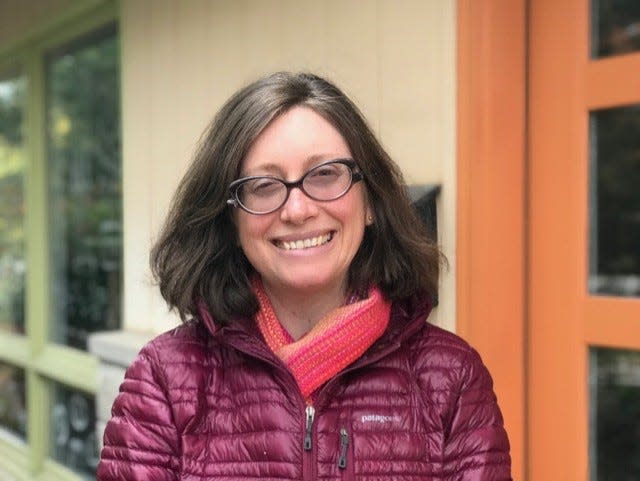Viewpoint: Indiana's public schools are essential public infrastructure

Public Schools Week is Feb. 21-25, and it’s appropriate that it follows Valentine’s Day. Our schools deserve our love.
In a school near you, a child brings letters together to form words for the first time. A friend offers comfort to a peer in distress. A social studies class explores world religions. Middle schoolers design a backdrop for a school play. High schoolers measure pollution in a local stream. A teacher patches a child’s sweatshirt during her prep period; another slips a granola bar to one who comes to school hungry.
No matter where you live in Indiana, a public school will take your children. In most places, a bus will pick them up in the morning and bring them back when the school day is over. Does your child have a learning disability and score poorly on tests? She is welcome. Does he struggle with strong emotions? He is welcome. Is the fifth-grade class already overflowing? Administrators will make space. It is the mission and responsibility of our public schools to serve every child, no matter ability, immigration status, income level, political ideology, race, gender or religion. In public schools, we learn to live with and respect people unlike ourselves. Public schools unite us.
In our schools, every moment of magic and opportunity, of competition and encouragement, of collaboration and achievement, has been made possible by both a person and a system. In addition to classroom teachers, school districts need bus drivers and nurses, office staff and kitchen workers, counselors, psychologists, language therapists, librarians, coaches, social workers and administrators.
Close to one million Indiana children attend public schools. As the pandemic has shown us, they make it possible for our state to function. Like roads and highways, fire departments, and social services, they are essential public infrastructure. And like those entities, they require our attention and material support to work well.
Yet over the past decade, lawmakers have funneled billions away from public schools —institutions subject to democratic oversight, that anchor our communities — to private schools, through vouchers, and to privately managed charter schools, which can be authorized by distant entities, and which can close with little notice. Public schools, by contrast, are accountable and responsive to our communities through elected boards. They are required to be transparent about their budgets, expenditures, policies, curriculum, and hiring practices. They keep the “public” in public education.
Inexplicably, our lawmakers are considering bills that would further damage our public schools. House Bill 1134 would make teachers’ lives harder, divert their time and attention from the classroom, have the effect of limiting frank discussions of racism and history, and set up roadblocks to providing mental health support for students. Senate Bill 17 would expose librarians and school districts to criminal prosecution while encouraging censorship. And House Bill 1072 would force school districts to share referendum funds — additional local property taxes approved by voters — with charter schools, even though part of the reason public schools lack money is that charters continue to be approved and expanded.
What can you do to support Indiana’s public schools? Ask your state representative for a “no” vote on bills that would do harm (go to indianacoalitionforpubliced.org and click on “Bills We’re Watching”). Come to the Statehouse for the Indiana Coalition for Public Education Day of Action “Public Schools Unite Us” on Monday, Feb. 21. And send a note of gratitude to the many people who work in our public schools, educating and caring for our children.
Jenny Robinson is a member of the Indiana Coalition for Public Education and vice chair for the Indiana Coalition for Public Education–Monroe County.
This article originally appeared on South Bend Tribune: Indiana's public schools require attention, material support to work.

 money
money 